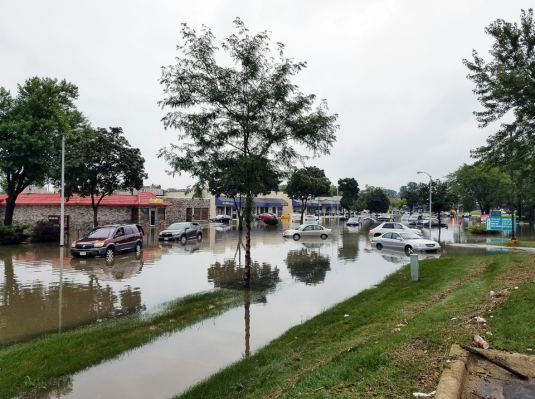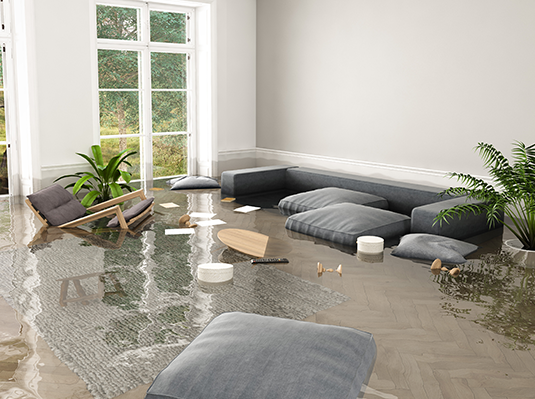
What is flood insurance, and why do I need it?
Flood insurance is a specific insurance coverage that protects your home and personal property against damage caused by flooding. Unlike standard homeowners' policies, flood insurance covers losses directly caused by flooding. This is critical because just one inch of floodwater can cause over $25,000 in damage.
What does flood insurance typically cover?
Flood insurance generally covers physical damage to your structure and possessions caused by floodwaters from an overflowing river, a hurricane, a snowed-in drain, or similar events. The main elements covered are:
-
The building and its foundation
-
Electrical and plumbing systems
-
Central air conditioning equipment, furnaces, and water heaters
-
Refrigerators, cooking stoves, and built-in appliances like dishwashers
-
Permanently installed carpeting over an unfinished floor
-
Personal belongings (clothing, furniture, and electronic equipment)
Are there limitations to flood insurance coverage?
Yes, there are limitations and exclusions to what flood insurance will cover. Flood insurance will typically exclude coverage for water damage that was caused from a water source that originated in the home, such as a broken pipe or overflowing drain, and comes into play when water from outside the home rises up and comes into the home or foundation. Additionally, flood insurance typically does not cover damage caused by moisture, mildew, or mold that could have been avoided by the property owner.
How much does flood insurance cost?
The cost of flood insurance varies depending on your property's flood risk, the value of your home and contents, and the amount of coverage you purchase. On average, homeowners can expect to pay around $700 annually, though rates in high-risk areas can be significantly higher.
How do I purchase flood insurance?
Flood insurance is available through the National Flood Insurance Program (NFIP) or through private insurers. To purchase a policy, contact your insurance agent, who can assist you with the application process and determine your home's risk level.
What is the National Flood Insurance Program (NFIP)?
The NFIP offers flood insurance to homeowners, renters, and businesses in select communities. The program is backed by the federal government and collaborates with nearly 90 private insurers, providing a level of assurance and stability. Review FEMA’s Flood Map to see if you reside in a high-risk flood zone supported by the NFIP.
Should I opt into the NFIP or choose a private insurer?
Private flood insurance can offer more flexibility and broader coverage, but it often comes at a higher cost. For those on a budget, NFIP policies might be more affordable. If you own a property in a high-risk flood zone, going with a private insurer does not necessarily guarantee a higher coverage limit than what the NFIP provides. Choosing NFIP could be a safer and more economical choice, especially for properties located in high-risk flood zones. However, it's important to weigh the pros and cons with your agent to get the right coverage for your unique circumstances.
How long does it take for flood insurance to become effective?
There is typically a 30-day waiting period from the date of purchase before your policy goes into effect. This is to prevent claims for imminent flooding events and highlights the importance of securing flood insurance before flood season begins. For example, hurricane season begins on June 1, so if you live in a hurricane-prone area, you should secure flood insurance as early as possible to increase the likelihood you make it through the 30-day waiting period without incident.
What should I do if I need to file a flood insurance claim?
If you need to file a claim, contact your insurance company immediately. Document all damage with photographs and video before cleaning or repairing, as you'll be required to provide an inventory of damaged or lost items. Your insurer will then send an adjuster to assess the damage and guide you through the claims process.
Can I get flood insurance if I'm renting a property?
Yes, renters can purchase flood insurance to protect their belongings. Your landlord's flood insurance may cover the building, but it does not cover your personal property. Renters should ensure they have a separate policy to cover their possessions.
Is flood insurance mandatory?
If your home lies in a high-risk flood area and you have a federally backed mortgage, you are legally required to have flood insurance. Even if it’s not required, flood insurance is still recommended since many flood claims occur outside of designated high-risk zones.
What should I consider when choosing the amount of coverage?
Understanding flood insurance and how it works is vital for homeowners to protect their property from unexpected and often costly damage. Don’t wait until a storm is in the forecast; examine your flood risk and contact your agent to review insurance options.
Did you know that our Digital Agent can give you a quote for flood insurance? Try it out today.
Get a Quote
The contents of this article are for informational purposes only. You should not act or refrain from acting based on this information without first consulting a Goosehead licensed agent at [email protected]. We disclaim all liability for actions taken or not taken by you based on the contents of this article which is provided "as is." Goosehead makes no representation that this content is error-free.


